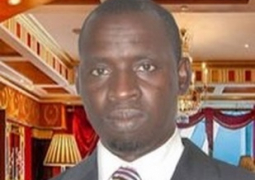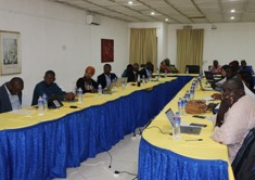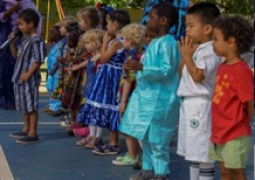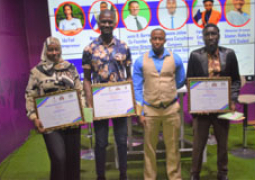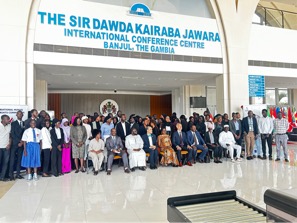
Organised by the National Human Rights Commission (NHRC) in partnership with the University of The Gambia, the event was also supported by the International Organization for Migration (IOM), UNICEF, the European Union (EU) and the Office of the High Commissioner for Human Rights (OHCHR).
Besides, this year’s competition was centered on the theme “Protecting the Fundamental Human Rights of Migrants and Their Families.” and brought together universities from across Africa to argue on a hypothetical case before the African Court on Human and Peoples’ Rights.
The final round saw the University of The Gambia competing against the University of Calabar, Nigeria, in a case involving a dispute between the Center for Migration Studies (CMS) as the Applicant and the Republic of Equitania as the Respondent.
Addressing the gathering, Emmanuel D. Joof, chairman NHRC highlighted the significance of the event, emphasising that it is universal ideals of equality, justice, and inclusivity.
He described human rights as not privileges, but birth rights that transcend boundaries of race, ethnicity, religion, gender, or social status.
The NHRC chairman maintained that true peace and progress can only be achieved when the rights and dignity of all individuals are respected, protected, and upheld, thus further underscoring the critical role of moot court competitions in promoting human rights education and fostering a culture of respect for dignity and justice.
The competition he added, offers law students a practical platform to enhance their advocacy skills by arguing complex human rights cases before distinguished judges, gaining real-world experience in defending human rights.
To that end, he expressed gratitude to their key partners such as IOM, UNICEF, the EU, and OHCHR for their technical and financial support, noting that not only for the moot court competition, but they also supported in advancing the rule of law and justice sector in The Gambia.
For his part, Karl Frederick Paul, UN Resident Coordinator, commended the NHRC for organising such an important competition, further describing it as a vital platform for students across West Africa to engage deeply with human rights issues and become future human rights advocates.
He emphasised the importance of this year’s theme in the context of The Gambia’s migration-related challenges, pointing out that a human rights-based approach to migration governance ensures the protection of all migrants and their families.
The UN resident rep explained how the moot court scenario reflected real-world migration challenges, including those faced by migrant children and families.
After a keenly contested event, University of Calabar in Nigeria Law students won and were presented with a sum of D150,000. The University of The Gambia Law students, who came second grabbed a sum of D100,000. The event also witnessed individual awards being presented to most outstanding students for their exceptional performances.
Read Other Articles In National News
